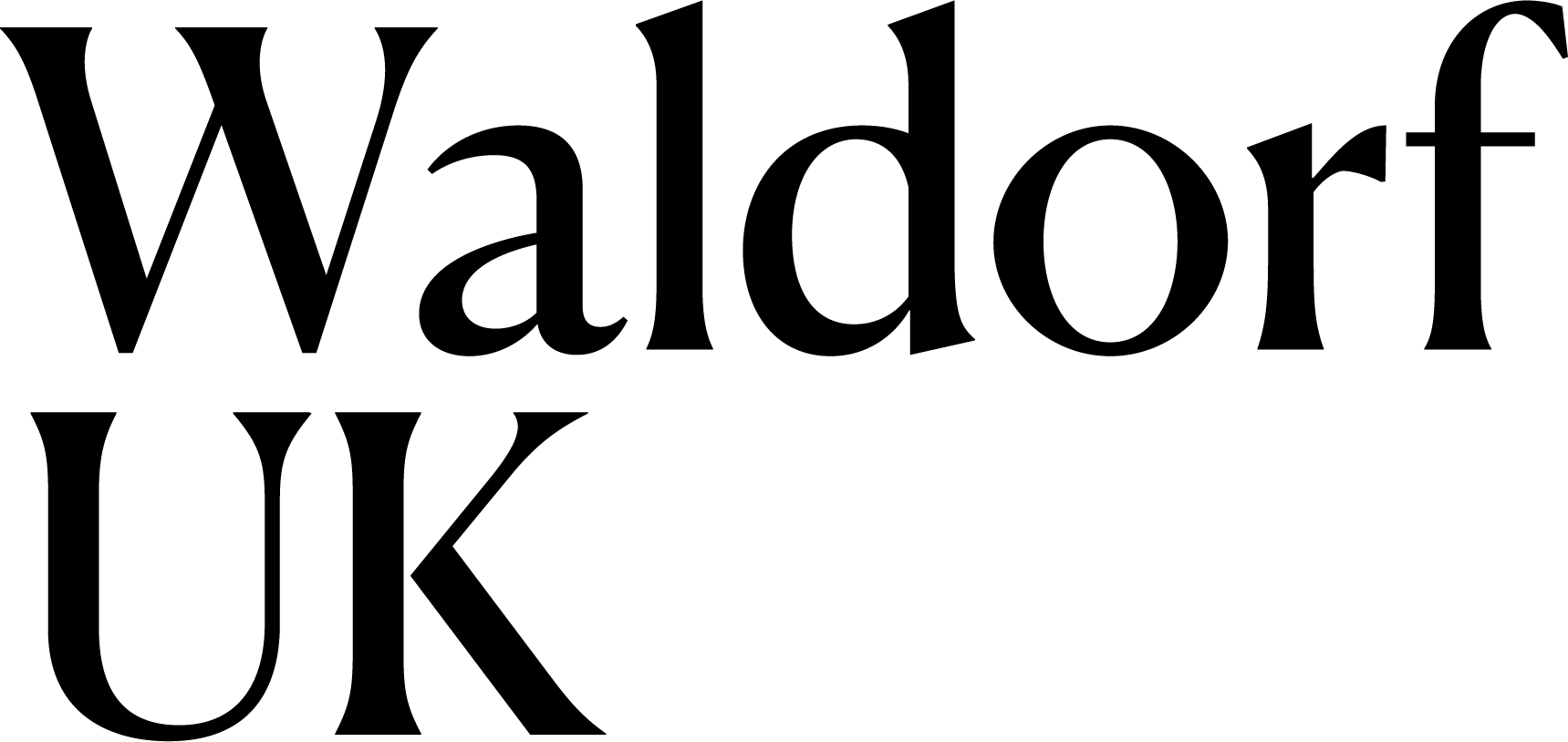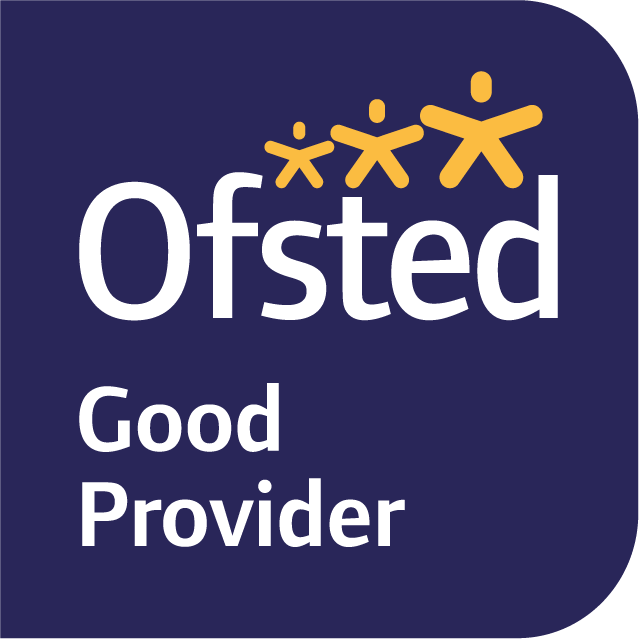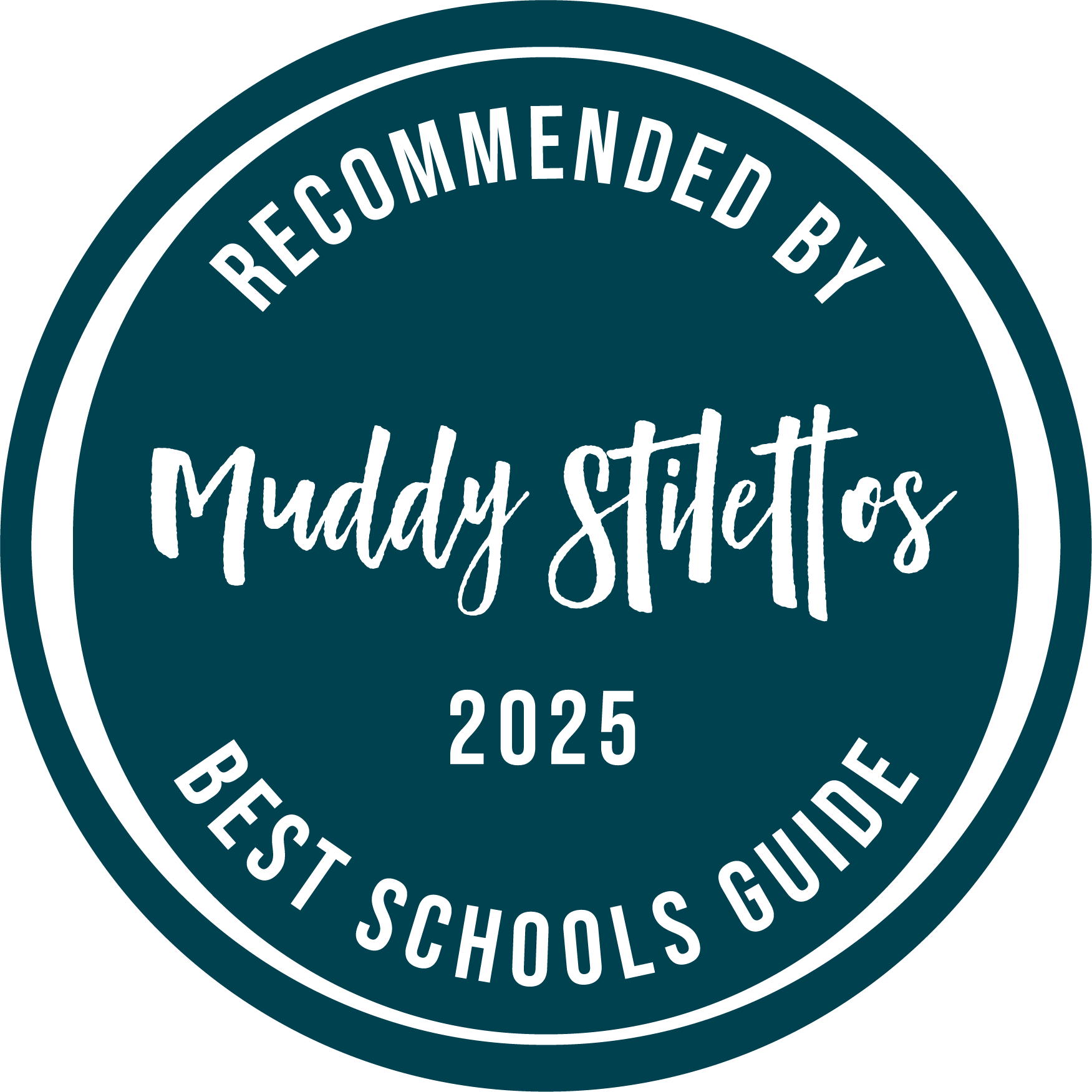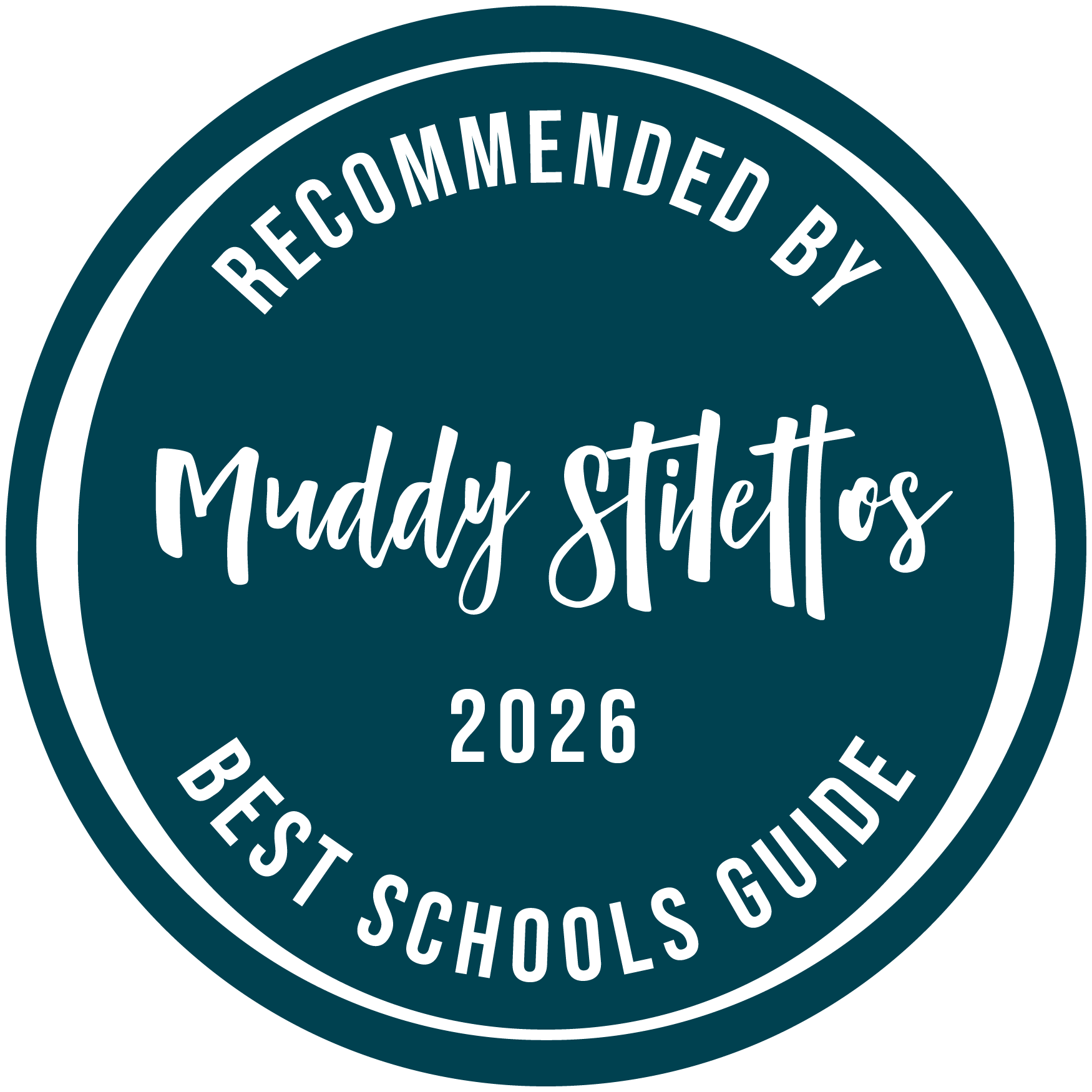The benefits of learning a musical instrument
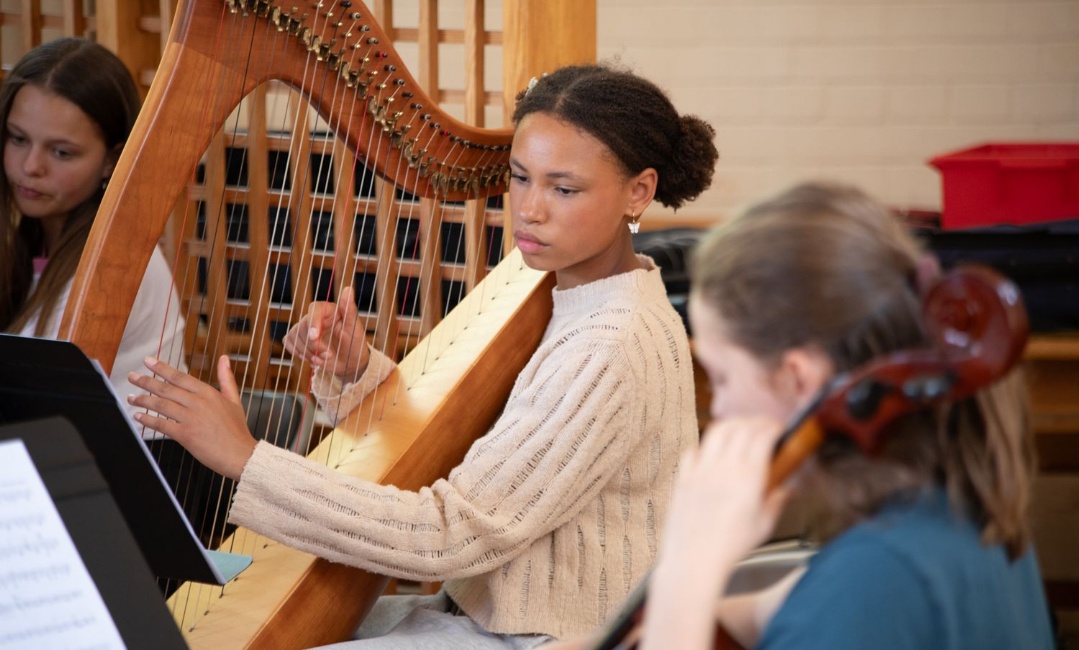
A cello, violin or viola, or perhaps a bassoon or just a basket of firewood? I’m not talking about one of the well-known viola jokes (what is the difference between a violin and a viola -the viola burns longer), but whether or not your child picks out a couple of logs from your basket of firewood to imitate an instrument, this could in fact be considered as an early pedagogical method of ‘air-playing’ and might suggest the child has had some valuable experience of live classical music; a first step towards learning an instrument perhaps! Listening to classical music is beneficial to all children and helps profoundly in many ways. Even hearing it as early as in the womb is scientifically proven to have calming effects, and provide potential developmental benefits. Exposing your child to classical music (‘live’ -even better) not only encourages the engagement with a musical instrument perhaps earlier than otherwise, but as demonstrated in the following article https://musicalpursuits.com/benefits-of-learning-an-instrument/ - learning an instrument supports and aids a wide range of developmental stages; helps to develop and strengthen certain skills that may otherwise be neglected and is proven to have long lasting benefits.
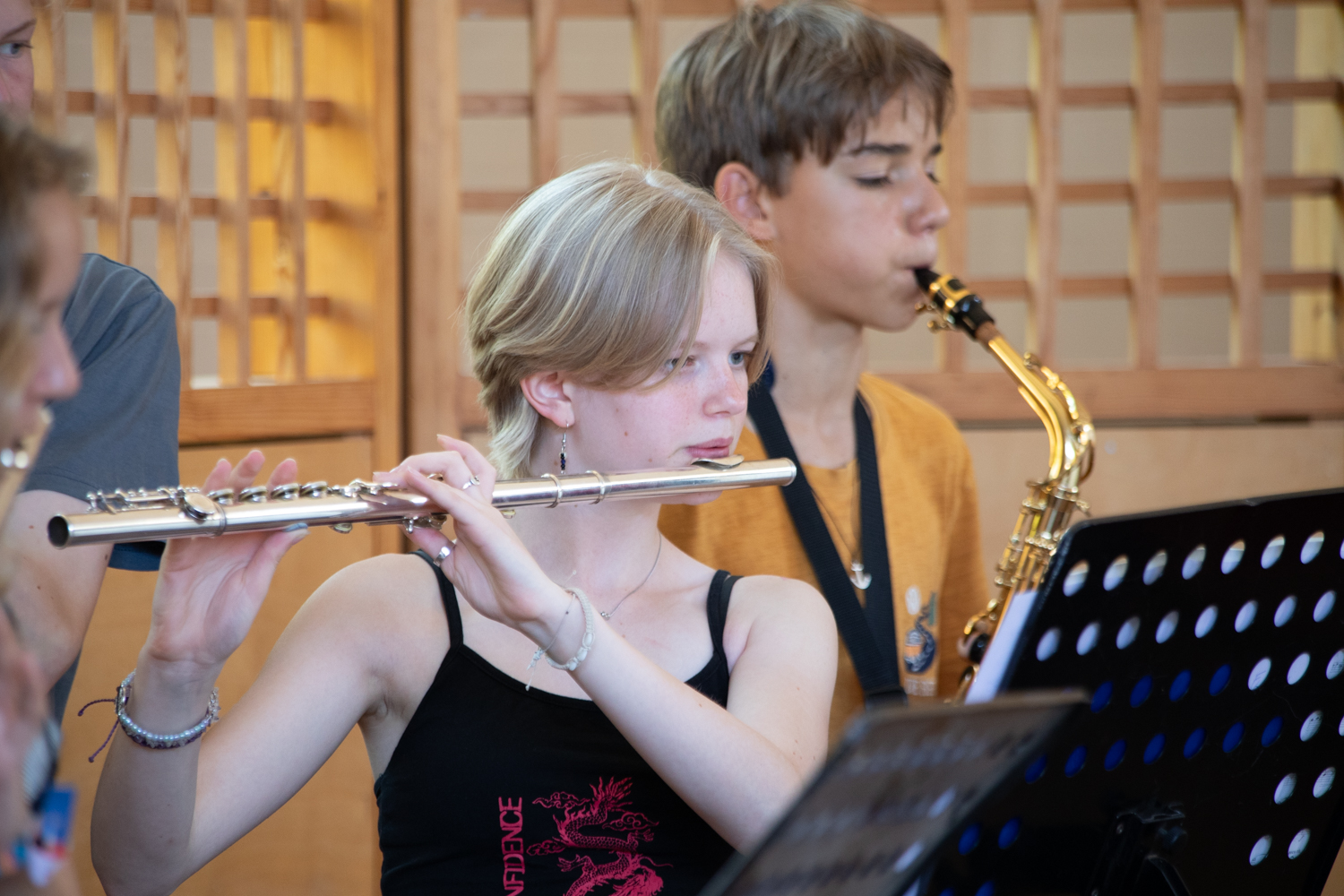 In March the world celebrated Neurodiversity week, where here at Michael Hall we strive to support and empower the neurodivergent pupils by creating a more inclusive environment that helps to transform how they may be perceived. Having taught the cello at Michael Hall School for 20 years now, I have had the privilege of teaching so many pupils with such a varied range of ability. I am currently thrilled to have amongst others, some class 3 beginners, a little group of class 5’s who love playing together in the bass group at lunchtimes on a weekly basis and am delighted that some of my older students now in classes 11 and 12 (who started in class 3) continue to enjoy their musical journey with me. Some of these have already
In March the world celebrated Neurodiversity week, where here at Michael Hall we strive to support and empower the neurodivergent pupils by creating a more inclusive environment that helps to transform how they may be perceived. Having taught the cello at Michael Hall School for 20 years now, I have had the privilege of teaching so many pupils with such a varied range of ability. I am currently thrilled to have amongst others, some class 3 beginners, a little group of class 5’s who love playing together in the bass group at lunchtimes on a weekly basis and am delighted that some of my older students now in classes 11 and 12 (who started in class 3) continue to enjoy their musical journey with me. Some of these have already 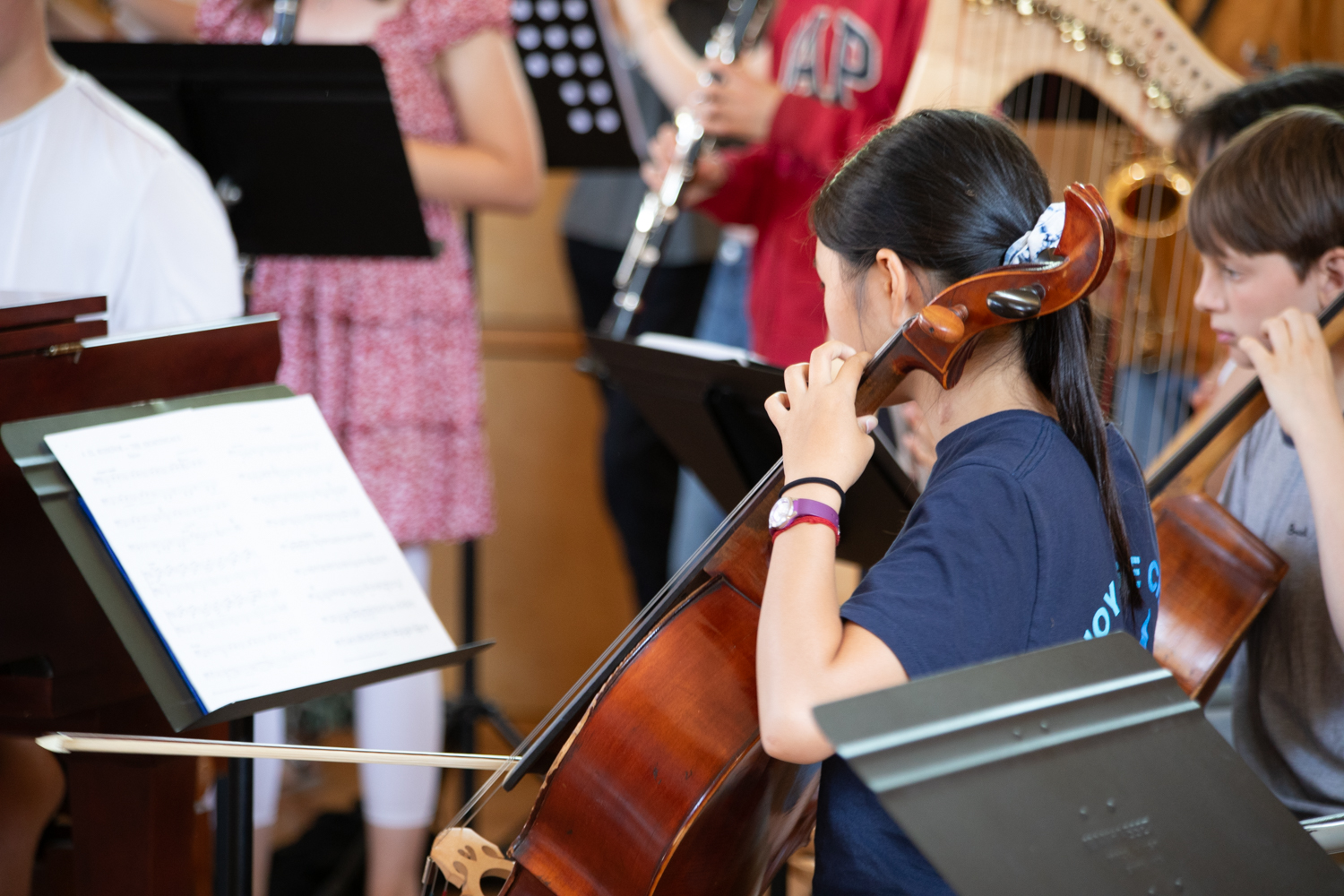 completed or are about to prepare for their Grade 8 cello exams. Exams are not a necessity and the different levels can of course be reached without them. But they do provide some good goals and milestones should the pupil like to have these as it can motivate them working towards these goals. I have also worked with pupils on the neurodivergent spectrum, which has been one of the most humbling experiences for me. To guide them through something they may initially struggle with, but to then see how, by learning an instrument, some of their diagnosed weaknesses (like fine motor skills) can be strengthened once they can come away from the ‘I can’t mode’ which is very often what they might present with just because of the ‘label’ they have been given. It is a joy to see their attitude change as instrumental playing helps their confidence and positivity grow if they are only given the opportunity to allow these skills to develop. When the coin flips, one can observe such pupils enjoying what they have accomplished and this is such a positive experience for them; it gives them real courage and fosters their understanding that they are able to learn a new skill. This builds confidence, as they are achieving this primarily on their own through regular practice.
completed or are about to prepare for their Grade 8 cello exams. Exams are not a necessity and the different levels can of course be reached without them. But they do provide some good goals and milestones should the pupil like to have these as it can motivate them working towards these goals. I have also worked with pupils on the neurodivergent spectrum, which has been one of the most humbling experiences for me. To guide them through something they may initially struggle with, but to then see how, by learning an instrument, some of their diagnosed weaknesses (like fine motor skills) can be strengthened once they can come away from the ‘I can’t mode’ which is very often what they might present with just because of the ‘label’ they have been given. It is a joy to see their attitude change as instrumental playing helps their confidence and positivity grow if they are only given the opportunity to allow these skills to develop. When the coin flips, one can observe such pupils enjoying what they have accomplished and this is such a positive experience for them; it gives them real courage and fosters their understanding that they are able to learn a new skill. This builds confidence, as they are achieving this primarily on their own through regular practice.
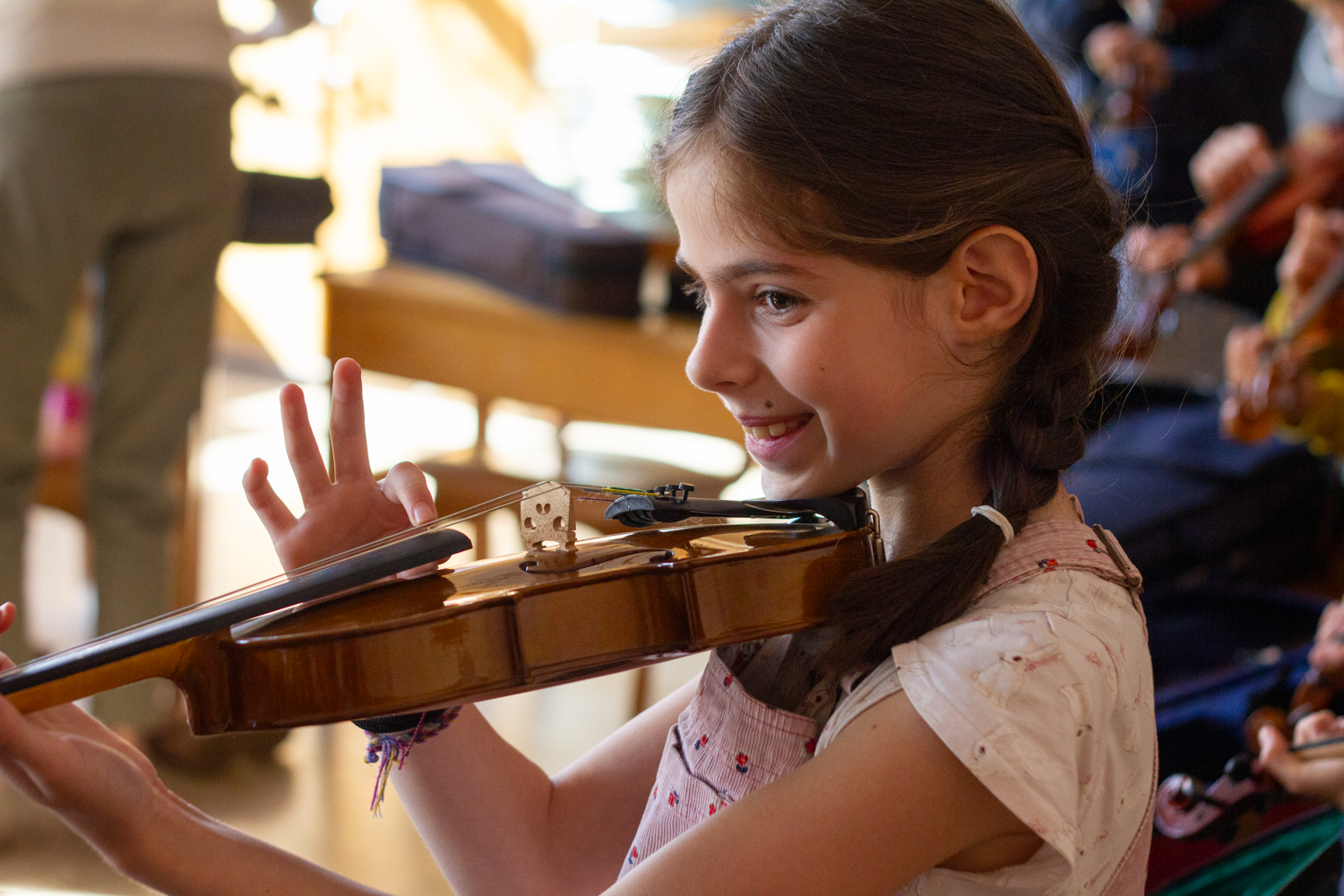 Class 2 have now had their Strings Experience main lesson this term, which is an exciting adventure when our wonderful violin teacher Nicoline Kraamwinkel introduces the pupils to the string instruments: violin, viola, harp and cello -which we encourage as many pupils as possible to take up from Class 3. During the last two weeks Class 3 have just had the privilege of listening and being introduced to the clarinet, flute and a range of brass instruments which we offer from Class 4 onwards along with the piano. By this age we consider them to be developmentally ready. It has been a pleasure to see the instrumental pupil numbers grow this year, in particular with the reintroduction of Brass. Currently we have space for pupils wishing to learn the ‘cello, clarinet, flute and the brass instruments, and for a start in September we look forwards to receiving your applications now. Should you be interested in the violin, viola or the piano, please do submit an application form however pupils may need to go on a waiting list for these instruments at this point. If you would like to apply for individual lessons or a taster for your child, please click on the following link to see further details and how to apply. https://www.michaelhall.co.uk/parents/music
Class 2 have now had their Strings Experience main lesson this term, which is an exciting adventure when our wonderful violin teacher Nicoline Kraamwinkel introduces the pupils to the string instruments: violin, viola, harp and cello -which we encourage as many pupils as possible to take up from Class 3. During the last two weeks Class 3 have just had the privilege of listening and being introduced to the clarinet, flute and a range of brass instruments which we offer from Class 4 onwards along with the piano. By this age we consider them to be developmentally ready. It has been a pleasure to see the instrumental pupil numbers grow this year, in particular with the reintroduction of Brass. Currently we have space for pupils wishing to learn the ‘cello, clarinet, flute and the brass instruments, and for a start in September we look forwards to receiving your applications now. Should you be interested in the violin, viola or the piano, please do submit an application form however pupils may need to go on a waiting list for these instruments at this point. If you would like to apply for individual lessons or a taster for your child, please click on the following link to see further details and how to apply. https://www.michaelhall.co.uk/parents/music
Applications need to be in by Monday 7th July for a September start.
Rachel Masters,
Instrumental Coordinator
June 2025


